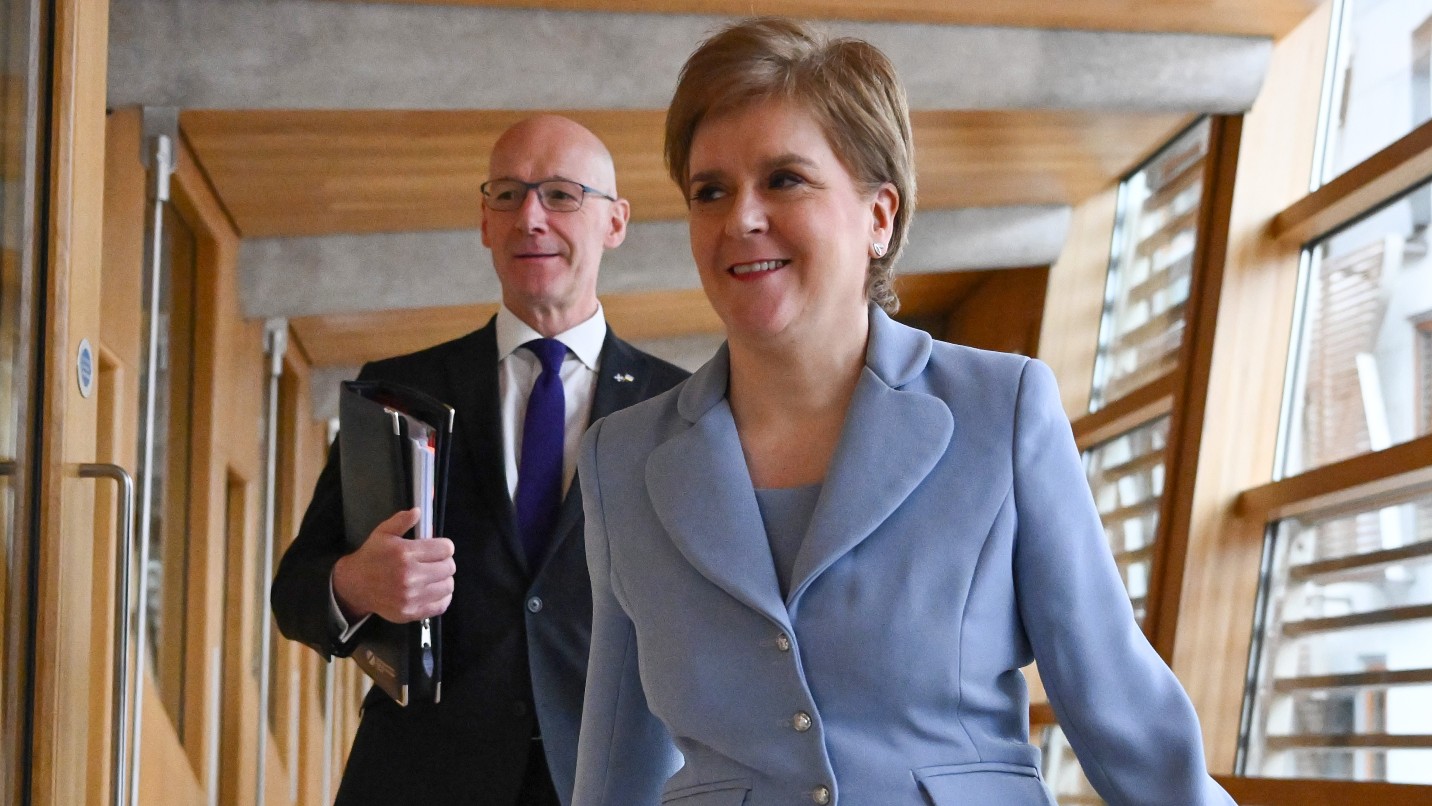Scottish independence polls: does Scotland want to leave the UK?
Supreme Court rules that Scotland cannot hold an independence referendum without Westminster’s consent

A free daily email with the biggest news stories of the day – and the best features from TheWeek.com
You are now subscribed
Your newsletter sign-up was successful
Scottish parliament cannot legislate for a second referendum without the UK government’s consent, the Supreme Court ruled today.
Scottish First Minister Nicola Sturgeon “set herself on a collision course with Downing Street” earlier this year by submitting an application arguing for Scotland’s right to self-determination, said The Guardian. It stated that the devolved country has “the legislative competence to legislate for a referendum on Scottish independence”.
She had hoped to hold a second referendum – known as IndyRef2 – on 19 October 2023, and to use the same question put to voters in 2014: “Should Scotland be an independent country?” This morning, the Supreme Court’s Lord Reed ruled that Scotland did not have the power to legislate for the vote.
The Week
Escape your echo chamber. Get the facts behind the news, plus analysis from multiple perspectives.

Sign up for The Week's Free Newsletters
From our morning news briefing to a weekly Good News Newsletter, get the best of The Week delivered directly to your inbox.
From our morning news briefing to a weekly Good News Newsletter, get the best of The Week delivered directly to your inbox.
But, “it doesn’t mean the question of independence will go away”, said the BBC’s chief political correspondent Nick Eardley.
A ‘stand-off’ with Westminster
The issue of Scottish independence has “never really faded from the front line of politics north of the border since 2014’s referendum” and was bound to “rear its head again” in 2022, the i news site’s Scotland editor Chris Green predicted at the start of the year.
The 2023 deadline “set the stage for a heightened constitutional stand-off with the UK government”, said the Financial Times.
Successive prime ministers have ruled out allowing a re-run of the 2014 referendum, arguing it was a once-in-a-generation vote that had been settled decisively, with the No campaign securing a 55% win. However, two years later, Scotland voted to remain in the European Union and Sturgeon said there is a “strong and compelling case” for independence, blaming some of Scotland’s problems on a “Brexit we did not vote for”.
A free daily email with the biggest news stories of the day – and the best features from TheWeek.com
What Scots are saying
For six months in 2020, polling consistently showed strong support for separation, with up to 58% in favour. But at the start of 2021, the tide began to turn, with support relatively divided for the following 12 months.
A Survation opinion poll last month found only 35% of Scots wanted a referendum next year. Separate polling suggested a small but consistent lead for the No campaign. In The Herald, Deltapoll data, which tracks voting intention to September this year, showed No leading by 47% to 42%, with 7% undecided.
This large group of undecided Scots “would tip the vote either way”, said the paper.
It is important to note that the latest polls were conducted before Liz Truss’s short-lived premiership and the economic fallout of her mini-budget, which may have driven up support for independence from Westminster after 12 years of Tory rule.
Leading poll watcher, Professor Sir John Curtice from the University of Strathclyde, has consistently said that a second referendum is too close to call, and that neither side would be confident of winning, based on poll data.
Bookies’ bets
Political pundits aren’t the only ones split on whether Scottish voters really want independence. Online gambling firm PaddyPower is offering 5/6 on stay and the same odds on leave, while William Hill is offering 4/5 on stay, and 10/11 on leave, according to Oddschecker.
Legal considerations
The “starting point” for the Supreme Court was the Scotland Act 1998, explained a House of Commons briefing paper on the legal issues surrounding a Scottish independence referendum. While both governments agreed that Scotland “cannot unilaterally end the union” and achieve independence, “they differ as to the ‘purpose’ and ‘effect’ of referendum legislation”.
Political and academic opinion was also divided as to whether the Scottish parliament could legislate for a referendum. Ahead of the ruling, many on both sides of the constitutional debate were “building themselves up to a fever pitch of anticipation”, reported the Scottish Daily Express.
A panel of five judges at the Supreme Court heard arguments from the Scottish and UK governments in London in October. Today, Lord Reed announced that the Scottish Parliament does not have the power to legislate for an independence referendum.
It means ministers in Westminster “aren’t faced with an imminent crisis over what to do next”, said Eardley at the BBC. “But there is still an unanswered political question: If the Scottish Parliament keeps voting for a referendum, can the UK government keep saying no?”
Elliott Goat is a freelance writer at The Week Digital. A winner of The Independent's Wyn Harness Award, he has been a journalist for over a decade with a focus on human rights, disinformation and elections. He is co-founder and director of Brussels-based investigative NGO Unhack Democracy, which works to support electoral integrity across Europe. A Winston Churchill Memorial Trust Fellow focusing on unions and the Future of Work, Elliott is a founding member of the RSA's Good Work Guild and a contributor to the International State Crime Initiative, an interdisciplinary forum for research, reportage and training on state violence and corruption.